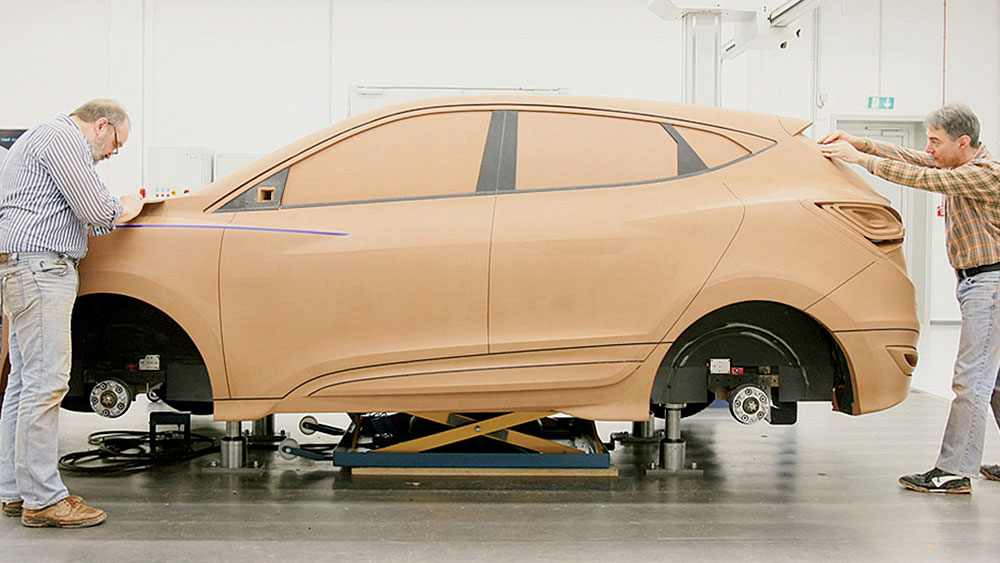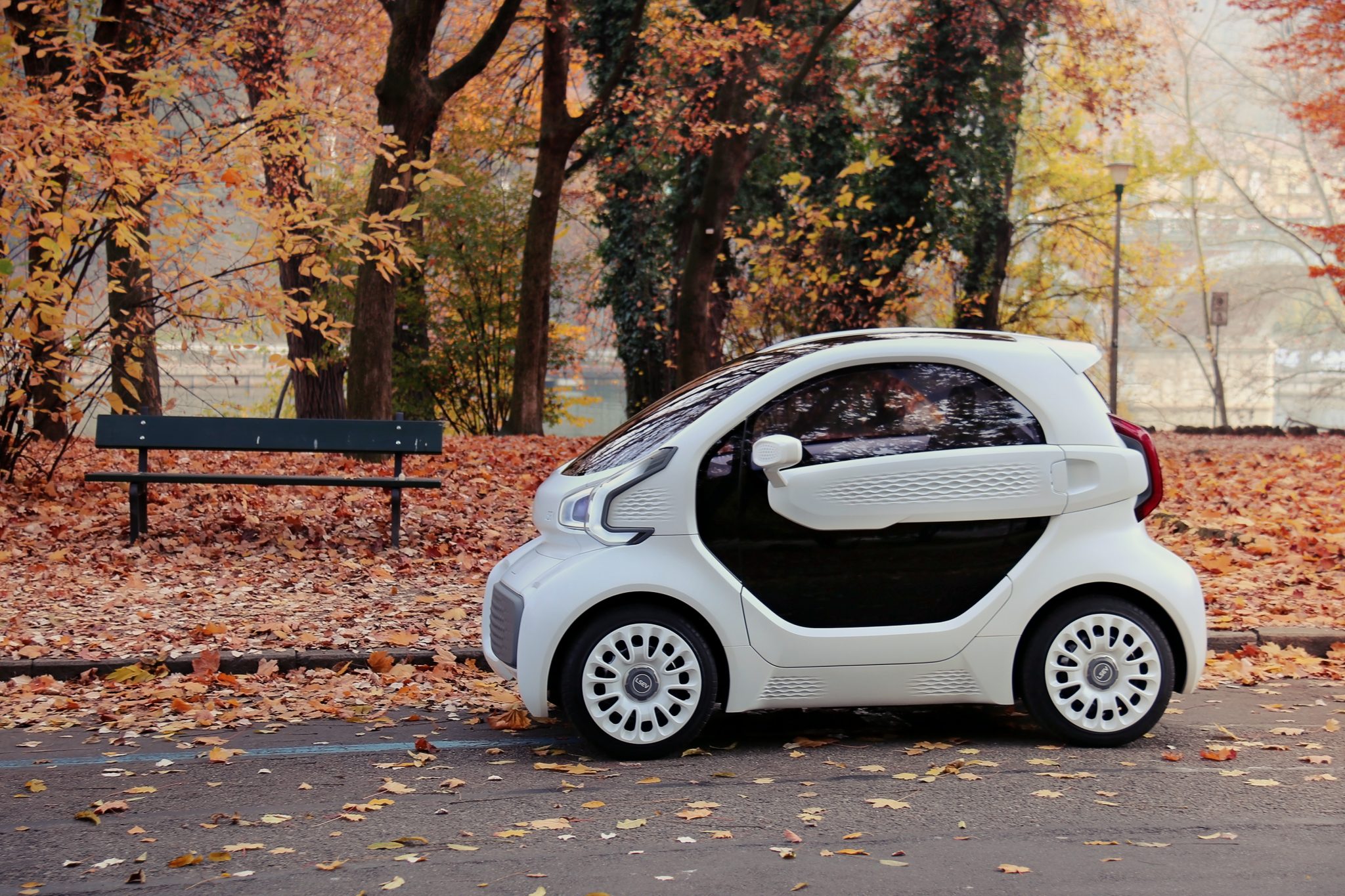a subsidiary of Hyundai Motor Group that manufactures automotive parts in South Korea, has opened a 3D printing lab, the Design Model Workshop, which has the capacity to 3D print customized vehicle parts. It is South Korea’s first design research facility launched by an automotive component supplier.
Prototyping 3D printed parts on clay models
The workshop is the result of a $2.8 million investment from Hyundai Mobis. The lab occupies 430 square meters at Hyundai’s Mabuk Technical Center, in Yongin, South Korea. The facility is equipped with a powder 3D printer, as well as a range of cutting-edge design machines, including a clay model processing machine, which is capable of creating full-size clay vehicles.
The clay model processing machine takes three weeks to produce a full-size car model, accurate to 0.05mm. This is a subtractive process, where a robot arm cuts into a block of clay before color and texture are added, creating a model visually identical to the actual car to be released. The 3D powder printer uses ultra-fine particles, producing precise details whilst also allowing easy post-processing or modification.

Proactive design through 3D printing
Placing the design and fabrication processes in a single location has streamlined the design process. Designers and engineers determine the suitability of the company’s parts for production cars by fitting full-size clay car models with components 3D printed at the facility.
Using 3D printing to reduce the time it takes to produce a sample, Hyundai Mobis are able to proactively offer component design in response to customer demands and trends.
“Adding design, which is within the area of emotion, to performance and quality will allow us to secure a competitive edge over global rivals,” said Hyundai Mobis Design Director, Kang Han-tae.
Accelerating automotive design with 3D printing
BMW Group is also set to open an additive manufacturing facility for the design and prototyping of customized automotive parts. The €10 million ($12.3 million) facility will begin operation in early 2019.
Award-winning 3D printer filament manufacturer Polymaker has partnered with new Italian car manufacturer XEV to 3D print low-speed electric vehicles.
Luxury car maker Porsche is now 3D printing spare parts for its classic cars, helping to keep older vehicles running for longer.

Keep abreast of the latest automotive news, subscribe to the 3D Printing Industry newsletter, follow us on Twitter and like us on Facebook.
Vote for automotive/aerospace application of the year and more in the 2018 3D Printing Industry Awards now.
It was very suitable blog for mechanical engineering and technology also I m very thankful to to this person who made these type of blog really appreciate to him marvellous work,great effort,good job.
ReplyDeletenice job dear keep it up
ReplyDelete